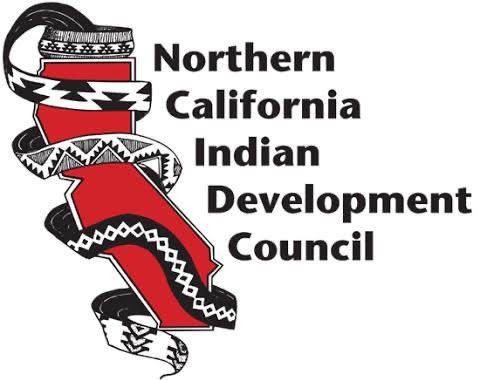With the help of grant funds from the Northern California Indian Development Council (NCIDC), the Soboba Public Works Department was able to implement a program to take care of much-needed cleanup and repair from federally declared disasters at the Soboba Indian Reservation.
Kenneth McLaughlin, Director of the Soboba Public Works Department, was the initial point of contact with NCIDC for disaster assessments within Soboba.
“This resulted in including Soboba as a potential worksite for the cleanup and repair of declared disaster damage in two different NDWG (National Dislocated Worker Grant) proposals, one for response to the storm disaster and the second for the response to COVID-19,” McLaughlin said. “Both these proposals were funded.”
The NCIDC also operates the American Indian Rapid Response network for the State of California. The NCIDC Rapid Response program responds to economic and natural disaster events within Indian communities in the state, and if indicated will assist in applying for NDWG funding to address a specific disaster.
“The NCIDC has a long history of working with Soboba on a variety of projects that goes back many, many years,” McLaughlin said.
Gregory Gehr, who has worked at the NCIDC for more than 15 years, with the past two years as Executive Director, said his organization exists to assist Tribes and be a resource to them.
“The Soboba Tribal Council, Administrator and staff, including specifically Director Kenneth McLaughlin and the Soboba Public Works Department, have been truly wonderful partners to work with over these many years,” he said. “The decades of projects that we have worked on together in adverse situations with limited resources have always resulted in positive outcomes that have improved the lives of individual Tribal Members and the community as a whole. We consider our ongoing relationship with Soboba to be an example of best practice in disaster response in Indian Country.”
The current NDWG Sudden Storms Project will initially involve 10 temporary workers, who will work for approximately 12 weeks each.
“We are also working on creating one position as a Sanitization Technician for Tribal facilities in response to the declared COVID-19 disaster,” McLaughlin said.
Ideally, the program will try to recruit and start all temporary job participants in a cohort, but there is flexibility to have them work in stages if that becomes necessary. Open to those age 18 and older, eligibility criteria are for those that were displaced as a result of the declared disaster. Long-term unemployed individuals are also eligible. However, the specific eligibility for the long-term unemployed designation varies by disaster. In general, it requires that the individual be unemployed for more than 15 weeks.
McLaughlin said the grant-funded workers may only work on the cleanup and repair of the disaster damage. In the case of the NDWG Sudden Storms Project disaster crews, this would involve cleanup and repair of storm-affected flood control systems such as the damaged levee and impacted culverts, ditches and dikes. In the case of the NDWG COVID-19 pandemic project, this would involve training a Sanitization Technician who would then provide cleaning and sterilization of Tribal public facilities to prevent the spread of COVID-19 to staff, clients and members of the public.
Although some of the duties may sound similar to what permanent employees of the Public Works Department do on a regular basis, they actually are specifically targeted as “cleanup and repair” of declared disaster damage only. They are not displacing any regular workers of the Tribe and are specifically targeting backlogged work directly caused by the disaster.
Soboba’s Tribal Administrator Michael Castello said more than 20 applications were submitted and the Tribe is currently conducting interviews for a possible start date by the end of this month. He said these types of projects benefit the Tribe in several ways.
“It provides jobs to the Tribal Members, provides an opportunity for Members to undergo training for potential long-term jobs and allows us to provide much-needed cleanup and repairs caused by the February 14, 2019 (storm) disaster,” Castello said. “Unfortunately, we have undertaken these types of projects due to previous disasters in the past several years. But programs like this one from NCIDC are one benefit that comes from these situations.”
Soboba’s Public Works Department proudly serves the Soboba Band of Luiseño Indians through facilities operations, infrastructure improvements, transportation, grounds maintenance, water services and emergency preparedness. Its mission is to provide and maintain the most desirable environment for the community by ensuring that all Tribal property is maintained to the highest standards possible.
The Northern California Indian Development Council Inc. (NCIDC) is a private nonprofit corporation that annually provides services to 14,000-15,000 clients statewide. It was established in 1976 to research, develop and administer social and economic development programs designed to meet the needs of Indian and Native American communities, to provide support and technical assistance for the development of such programs, and the conservation and preservation of historic and archeological sites and resources.
Gehr explained that the NCIDC operates a statewide Low-Income Housing Energy Assistance Program (LIHEAP) serving 48 Tribes located within California, as well as a statewide disaster assistance program serving all Indian communities throughout the state. The NCIDC is also the statewide Community Service Block Grant (CSBG) American Indian Program provider for California, providing services to Indian people in 57 counties as well as 104 Tribal reservations and rancherias within the state. In addition, the NCIDC operates Native employment and training services, youth and education services, and community and economic development programs for Northwestern California.
“Native people and most importantly Native youth are sacred and deserve to be proud of their culture, heritage, traditions, languages, and ancestors,” Gehr said. “The NCIDC wants Native people to succeed in all aspects of an integrated life, work, family, spirituality, social relations, physical well-being, and cultural pride. The NCIDC, working with a statewide network of Tribal and nonprofit partners, provides resources and services to assist American Indians to meet these goals.”


